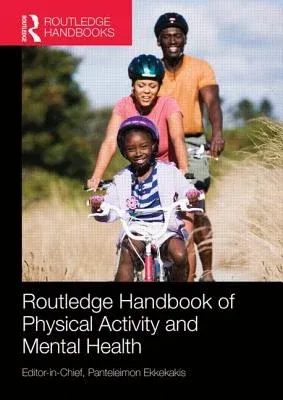A growing body of evidence shows that physical activity can be a
cost-effective and safe intervention for the prevention and treatment of
a wide range of mental health problems. As researchers and clinicians
around the world look for evidence-supported alternatives and
complements to established forms of therapy (medication and
psychotherapy), interest in physical activity mounts.
The Routledge Handbook of Physical Activity and Mental Health offers
the most comprehensive review of the research evidence on the effects of
physical activity on multiple facets of mental health. Written by a team
of world-leading international experts, the book covers ten thematic
areas:
- physical activity and the 'feel good' effect
- anxiety disorders
- depression and mood disorders
- self-perceptions and self-evaluations
- cognitive function across the lifespan
- psychosocial stress
- pain
- energy and fatigue
- addictions
- quality of life in special populations.
This volume presents a balanced assessment of the research evidence,
highlights important directions for future work, and draws clear links
between theory, research, and clinical practice. As the most complete
and authoritative resource on the topic of physical activity and mental
health, this is essential reading for researchers, students and
practitioners in a wide range of fields, including clinical and health
psychology, psychiatry, neuroscience, behavioural and preventive
medicine, gerontology, nursing, public health and primary care.

